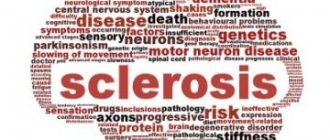May 24, 2018
Rhetoric is oratory, the art of public speaking. If you think that it has sunk into oblivion along with ancient civilization, you are mistaken. Steve Jobs went down in history not only as the leader of a corporation creating the world's leading technologies, but also as a brilliant speaker. People came to his performances from other countries and crossed continents to hear him again. In 2009, a report that Jobs would not attend the Boston company's annual Macworld Expo event led to public unrest.
For a business conversation to take place, it is not enough to know vocabulary, grammar,
stylistics of this type of communication, although they are important. If you are an entrepreneur who cares about the future of your company and plans to develop it, you need to learn how to use your speech in such a way that you can easily interest your interlocutors and win them over to your side. Could even one person refuse Steve Jobs?
Read our article and you will learn how to set up business communication with department employees, business partners and customers. Our material will help you cope with anxiety before a speech, tell you about the techniques of “white” and “black” rhetoric, and provide effective exercises for developing speech skills.
Natural eloquence
Manifestations of natural speaking ability are often found in everyday life. Let's imagine a situation: one person walks along the road, not seeing the danger threatening him, and another, raising his voice, warns him about it. Another example. One person falls into the water, and another raises a cry for those around him to come to the rescue. Examples of natural eloquence can be found in villages, where people communicate loudly and emotionally, almost shouting to each other (“across the street”), or in the market, where everyone communicates something about their product. Such manifestations of eloquence do not require special preparation. The voice in such cases rises naturally, under the influence of feelings and appropriate circumstances.
Oratory in life
The ability to speak in front of an audience will come in handy. This gives strength, confidence and healthy optimism. It becomes possible to see further prospects for actions and feel the result in advance. Public speaking improves the quality of life. A person opens up to new impressions and always finds the right words to explain his own position to his interlocutor.
Regular performances build character and help you concentrate on the main thing, without being distracted by possible trifles. The ability to communicate coherently in life is worth a lot. Most people get confused if they have to talk about something they have no idea about. Only a person trained for success attracts positive changes in life.
READ Neurolinguistic programming: what it gives and how to master the method itself
Oratory
There are situations when a person needs to say something beautifully and convincingly, but the necessary emotions are not present at the moment. This requires special self-management skills, which can be acquired through the practical application of oratory techniques. Oratorical eloquence, as a special form of art, arose in ancient Greece. No other ancient culture - neither Egyptian, nor Akkadian, nor Chinese, nor Indian - pays such close attention to oratory as the Greek, and does not provide high examples of the substantive and stylistic perfection of dialectics and the art of the spoken word. Oratory teaches how to make ordinary speech oratory. The traditions of modern oratory take their origins from the ancient rhetoric of Ancient Greece and Rome. However, modern techniques of oratory are based on the conditions of technological development of mankind. Thus, the speaker today is assisted by sound and visual means, which makes his speech more effective than hundreds of years ago.
Memory training
As Quintilian wrote: “Memory is the treasury of eloquence.” Therefore, anyone who wants to develop their oratory skills needs to train their memory. For these purposes, it is recommended to perform some kind of exercise daily. For example, learning poems by heart or memorizing newspaper articles.
The modern speaker does not need to become a walking encyclopedia, but this skill would be very useful. With a well-developed memory, he will have more facts and knowledge at his disposal to broadcast and hold the audience's attention. A well-functioning memory is even more in demand for participating in discussions and negotiations than for speaking.
In general, it is important for the speaker: firstly, to remember the basis of his speech, composed of key words, and secondly, to present in great detail the causal relationships and outlines of the intent of the text with which he has to work. In the case of a speech simply memorized, there is a possibility that a little excitement can break the main thread of the topic being presented.
Currently, there is an overabundance of information thanks to the media. The human brain is literally choked with incessant streams of information. This leads to inhibition of the processes of its processing by the mind. To strengthen memory in such conditions, the combined influence of three factors is recommended:
- concentration - increasing the ability to perceive;
- creating associations or memory bridges;
- repetition.
Properties of oratory speech
Oratorical speech is a type of monologue speech used in a situation where the speaker addresses a large audience with the goal of persuasion.
[2]. The speaker’s speech has its own characteristics of composition and style, as well as a special relationship between linguistic and non-linguistic means of communication. There are several main qualities that distinguish oratory from other types of speech.
- The speaker addresses the people with an oratorical speech - not only to convey information to the listener, but also to receive a response in the form of interest (to convince) or some action (to motivate). Such speech always has a propaganda character
.
To do this, the speaker must be inspired by the subject of his speech and put into it what he considers necessary and useful for his listeners
. - In order for a speech to touch and interest the audience, the authority of the speaker or his special psychological mood is important. To induce listeners to take some action, the speaker, first of all, makes an effort himself, which requires special effort of will
. This effort is felt in the speaker’s speech and is transmitted to his listeners, prompting them to action.
Lecture 14
FEATURES ORAL
PUBLIC SPEECH.
ORATORY
Plan
1. Oratory.
2. Personal qualities, knowledge, skills and abilities of the speaker.
3. Daily preparation for public speaking.
4. The main stages of preparation for a specific performance.
5. Giving a speech: the speaker’s work with the audience.
6. Basic types of oral public speech.
1. The term oratory is of Latin origin; its synonyms are the Greek word rhetoric and Russian eloquence . Classical rhetoric consisted of five parts: finding material, arranging it, verbalizing the speech, memorizing it, and finally delivering it. Rhetoric was developed by ancient scientists Aristotle, Cicero, Quintilian, and developed in the Middle Ages and in modern times. “A Brief Guide to Eloquence” by M.V. was of great importance for the development of Russian speech culture. Lomonosov, in which the rich linguistic material was creatively summarized. The scientist subordinated rhetorical rules and linguistic imagery to existing social needs. Rhetoric M.V. Lomonosova enriched oratory and literary Russian speech with a variety of stylistic devices.
Modern experts in rhetoric define oratory as the ability to substantiate a particular point of view, defend a position, prove the correctness of the ideas and positions put forward. The skill of mastering this art is an important factor of professional competence, the key to career growth in professional and social activities. The famous politician and orator Marcus Tullius Cicero wrote: “There are two types of art that can elevate a person to the highest level of honor: one is the art of a good commander, the other is the art of a good orator.” Today, of course, there are other types of art that can provide honor and respect in society. But the art of a good speaker still helps a person achieve high goals and occupy a high position in the social hierarchy.
2.People who want to improve in public speaking often face the question: will it work? What is the art of oratory made of? What qualities should a speaker have to effectively influence an audience? Perhaps a special oratorical talent is needed? Usually in such cases they are reassured by the famous statement of Cicero that poets are born, but orators are made.
What do modern experts think about the opportunity to become a speaker? The first, mandatory quality of a speaker is a high level of speech culture. Oratory is, first of all, the art of speaking, verbal mastery. A good speaker in his public speech uses all the requirements of speech culture: correctness, accuracy, purity, intelligibility, logic, richness, expressiveness, appropriateness.
In addition to high speech culture, the speaker must also have a whole set of personal qualities . Rhetoric experts name the following personal qualities: charm, naturalness, artistry, self-confidence, objectivity, genuine interest in the topic of speech. For the success of public speaking, personal qualities must be supplemented with special knowledge, skills and abilities . Knowledge forms the foundation of public speech. The speaker must know the subject of his speech well and understand all the intricacies of the problem under consideration. However, in order to be a good speaker, professional knowledge alone is not enough. Oratory is inseparable from the general culture of man. The speaker must be a highly erudite person, i.e. well-read, knowledgeable in the field of literature and art, science and technology, understand politics and economics, be able to analyze events occurring in their country and abroad, etc.
Successful public speaking is impossible without special skills and abilities. According to experts, a speaker must possess such skills as: selecting literature, studying literature, drawing up a plan for a speech, writing the text of a speech, the skill of self-control in front of an audience, and the skill of time orientation.
The skill of selecting literature has traditionally been associated with the ability to use catalogs (alphabetical, systematic, subject). Today, due to the widespread use of computers, there are great opportunities to use the worldwide Internet information system for selecting literature.
Literature study skills consist of the ability to identify from selected literature those sources that are subject to the most careful study, make the necessary extracts (synopses), comprehend and systematize the studied material.
The skill of drawing up a plan for a speech presupposes the ability to structure it and compositionally break it down. The plan is the relative arrangement of the parts, a brief program of the speech.
The skill of writing text is formed as a result of systematic work on composing the written text of one’s speeches. Working on a written text activates the speaker’s mental activity, allowing him to delve deeper into the essence of the problem and more accurately express his thoughts. While working on a written text, the speaker has the opportunity to select the most successful words and expressions and eliminate speech errors. You can return to the written text after some time to improve its content and form.
The skill of self-control in front of an audience comes down to the ability to overcome initial nervousness, “pull yourself together” at the beginning of a speech, not succumb to provocations and not lose control over oneself if someone in the audience tries to throw the speaker out of emotional balance through provocative questions or remarks. in order to disrupt the performance. The development of this skill is facilitated by regular practice of public speaking, as well as psychological training, which can be found in specialized literature.
The skill of time orientation presupposes the speaker’s control over the time frame of his speech. The speaker must be able to fit within the allotted time for speaking, give the audience the opportunity to ask questions that interest them and answer these questions. If the time for the speech is not set, then the speaker should be able to determine by the reaction of the audience whether the audience is ready to listen further or whether it is tired and it is time to end the speech.
A speaker’s skills consist of acquired knowledge and skills that allow him to solve complex creative problems in the process of preparing and delivering a speech.
This, for example, is the ability to independently draw up a plan for a speech and prepare a speech. Since a text prepared by other people, even better than the speaker, specialists in this field of knowledge, remains alien. For a text to sound good and have an effective impact on the audience, it must be “your own,” personally suffered through, passed through your mind and feelings.
Another important characteristic of a speaker is the ability to clearly and convincingly present material and answer questions from listeners. This skill is determined by how the speaker knows the subject of speech and to what extent he owns speech culture. The speaker should not avoid answering questions that are unpleasant for him. Answers to questions should be accurate and concise, but sufficiently reasoned. You should also take care of the correct form of answering questions; the answer should not offend the feelings of the author of the question.
One of the most difficult skills, in which, in fact, the art of a speaker is manifested, is the ability to establish and maintain contact with the audience . If there is no contact with the audience, then either the speech itself loses its meaning as a whole, or its effectiveness sharply decreases.
3.In practice, there are successful improvisations of oratorical speeches. However, if there is an opportunity for preparation, then it should definitely be used. Everyday preparation for a performance includes the following elements.
1) Self-education in the broadest sense of the word is the acquisition of new knowledge, replenishing it with information from various fields of technology and social life. The speaker must be aware of current events, expand his general horizons and deepen his knowledge in professional activities.
2) Creating your own archive. For this purpose, it is recommended to make extracts, compile notes of the sources being studied, make clippings from newspapers and magazines, collect proverbs and sayings, accumulate statistical material, and save questions that were asked after the next speech.
3) Improving the culture of public speech . As noted above, a good command of factual material is an important prerequisite for the success of oratory. But this material must be presented and conveyed to the consciousness of the listeners. And here the art of speech, the mastery of words, comes to the fore.
A person who, by the nature of his activity, systematically makes public speeches, must constantly pay attention to the culture of verbal communication, always strive to speak correctly, accurately, clearly and understandably, be able to clearly formulate his thoughts, figuratively and emotionally express his attitude to the subject. This is facilitated by active participation in business conversations, discussions of various problems among friends, relatives, colleagues, in seminars and practical classes, in debates and discussions.
4) Mastery of speech technique. The effectiveness of public speaking is directly related to the speaker’s mastery of speaking technique. The main elements of speech technique: phonation (speech) breathing, voice (correct voice formation skills) and diction (the degree of clarity in pronouncing words, syllables, sounds). Proper breathing while speaking, a well-trained voice, clear diction, and impeccable pronunciation allow the speaker to attract the attention of the audience and influence the consciousness, imagination and will of the listeners.
5) Critical analysis of the speech . Improving oratory skills is also facilitated by critical analysis of both the speeches of other speakers and your own. When listening to the speeches of other speakers, you need to pay attention not only to the content of the speech, but also to the form of presentation of the material: the linguistic design of the speech, oratorical techniques. At the same time, you should determine for yourself what you like and what causes a negative reaction, which words, speech patterns, actions, techniques contributed to the success of the speaker, and which, on the contrary, brought him failure.
6) Mastering public speaking techniques is an integral part of everyday training. It is important to know what stages a speaker’s activity consists of, how to prepare for a meeting with listeners, how to structure a speech, and what techniques to use to manage the audience. All this knowledge is contained in the literature on public speaking.
4. Each speech on topic, purpose, nature of the audience, etc. has its own characteristics and requires special training. Therefore, when preparing for a specific performance, you need to pay attention to the following steps .
1) Choosing a problem and topic for speech is one of the most important initial stages of preparing a public speech. An issue is a thought worthy of discussion, an idea that has social significance or is significant to a particular group of people. A topic is a side, an aspect of the problem chosen for discussion. For example, the problem: “How to improve the well-being of our people?” Topic: “Can private enterprise improve the well-being of the people?” The topic formulation must meet a number of requirements :
– the topic must be formulated clearly and concisely, since long formulations, including unfamiliar words and expressions, can cause a negative attitude towards the upcoming speech;
– the chosen wording should reflect the content of the speech;
– the wording should also attract the attention of listeners and interest them.
2) Determining the purpose of the speech . The goal is what the speaker is striving for, what result he wants to achieve: whether to pose a new problem, refute someone else’s point of view, set people up for a certain line of behavior, etc. So, in the topic of the speech “Can private enterprise improve the well-being of the people?” the speaker can set himself a goal: to convince people not to interfere with private entrepreneurs, but, on the contrary, to support their efforts.
3) Selection of materials for the presentation. The content of the speech, as already noted, plays a critical role in its effectiveness. Therefore, the speaker must collect material that is interesting and useful for the audience. Where can a speaker get it from?
If this is an experienced speaker, then he turns to his own knowledge and experience, to his archive. New ideas, information, facts, examples for your speech can be found by referring to official documents, reference literature, scientific and popular science literature, articles from newspapers and magazines, materials posted on the Internet; radio and television broadcasts, results of sociological surveys, fiction, personal contacts, conversations, interviews, reflections and observations.
4) Development of a speech plan . A speech plan is a brief program that determines the order in which the material will be presented. At different stages of preparation, plans are drawn up that differ in purpose and purpose: preliminary, working, main.
5) Work on the composition . Composition is the structure of a performance, the relationship of its individual parts with the entire performance as a single whole. If the ratio of the parts of the speech is violated, then the effectiveness of speech decreases sharply.
There are general principles for constructing a speech that a speaker should follow:
– principle of consistency . Each thought expressed must follow from the previous one;
– principle of expediency . The speaker and listeners must be aware of the direction of the speech along the following chain: problem - topic - thesis - arguments - purpose of the speech;
– principle of amplification . The speech impact on the listener should increase from the beginning of the speech to its end. Experienced speakers make their strongest points at the end of their speech;
– the principle of economy is the desire to achieve a goal in the simplest, most rational way with minimal effort, time, and verbal means;
– principle of effectiveness . The speech should contain some conclusion offered to the listeners, a call to action, and recommendations for further behavior.
The most common structure of an oral presentation is considered to be three-part , including an introduction, main part and conclusion .
The purpose of the introduction is to interest the audience, to attract the attention of listeners to the topic of the speech. In the introduction, a distinction is made between beginning and beginning. The purpose of the beginning is to prepare the audience for perception, to attract attention. Experienced speakers use proverbs and sayings, popular expressions, and interesting examples as a starting point. The opening is aimed at transitioning to the presentation of the main part of the speech, at introducing the audience to the points of the plan.
The most significant part is the main part of the speech. It sets out the main material, formulates and proves the substantive provisions.
The structure of the main part depends on the speaker’s chosen method of presenting the material. methods of presenting material are traditionally used in oratory :
– inductive (from specific facts to generalized conclusions);
– deductive (from general provisions to specific facts);
– analogies (drawing parallels with what is well known to listeners);
– concentric (arrangement of material around the main problem);
– stepwise (sequential presentation of one issue after another);
– historical (presentation of material in chronological order).
The choice of method is determined by the communication situation. It is recommended to use different methods in one speech. Whatever methods the speaker uses, his speech must be reasoned and demonstrative.
Argumentation . Let's take a closer look at what argumentation is. Argumentation refers to the process of presenting evidence to substantiate an idea. The speaker’s task is not only to offer a certain system of arguments in defense of an idea, but also to ensure its understandability and accessibility for the audience.
Arguments are divided into pros and cons. Arguments in favor should convince the audience that they are truthful, based on authoritative sources, and close to the opinions established in the audience. Arguments “against” should convince the audience that the positions criticized by the speaker do not have the same features that are highlighted for the arguments “for”. The strength of an argument is a relative concept, as it depends on the situation, the emotional and psychological state of the listeners and many other factors - gender, age, professional training of the audience. However, there are several typical arguments that are considered strong by most audiences. Such arguments usually include: scientific axioms, provisions of laws and official documents, laws of nature, conclusions confirmed experimentally, expert opinions, references to recognized authorities, quotations from authoritative sources, eyewitness testimony, statistical data.
According to the methods of influencing the consciousness and feelings of listeners, arguments are divided into two groups:
1) rational arguments, or arguments “to the point”;
2) irrational (psychological) arguments, or arguments to a person.
Rational arguments include facts, appeals to authorities, laws, theories, axioms accepted in a given society.
Irrational arguments include appeals to the feelings, desires, and interests of the addressee.
The methods of argumentation include - up, one-sided and two-sided argumentation.
Top-down and bottom-up argumentation. Top-down argumentation is when the speaker makes the strongest arguments first, then the less strong ones, and ends the speech with an emotional request, motivation, or conclusion. The advantages of top-down argumentation are that it makes it easier to attract and retain the attention of the audience, makes thoughts actively work at the beginning and feelings at the end, the first arguments are better remembered.
Top-down argumentation is most effective with a poorly prepared and uninterested audience. Weak arguments with top-down argumentation look better than with other methods of argumentation.
Rising argumentation suggests that the argument and the intensity of feelings increase towards the end of the speech. This method is effective in a prepared, highly interested audience. It is effective if: the atmosphere in the audience is calm and they are ready to listen to the speaker; the idea that needs to be justified is complex; the problem for this audience is not completely resolved; the audience can draw their own conclusions.
One-sided and two-sided argumentation. One-sided argumentation assumes that:
– either only arguments “for” are presented (pure positive);
– or only arguments “against” are presented (pure negativity).
With two-sided argumentation, the listener is given the opportunity to compare points of view, choose one of two alternatives, presenting opposing points of view.
A variation of the method of two-sided argumentation is the so-called method of counter-argumentation, when the speaker presents his arguments as a refutation of the opponent’s arguments, having previously stated them.
When selecting arguments to prove the position being put forward, the speaker needs to remember the requirements for arguments . Arguments must be true, consistent, evidence-based regardless of the thesis, and sufficient.
The optimal number of arguments when proving a thesis is considered to be “ three ”: one argument is simply a fact; You can object to two arguments, but it’s more difficult to do so with three arguments. The third argument has a decisive impact: starting from the fourth argument, the audience no longer perceives the argument as a system, but as many arguments. At the same time, the impression arises that the speaker is trying to put pressure on the audience, “persuading.” There is an old saying: he who proves a lot proves nothing. "Many" starts with the fourth argument.
The final part of the speech - the conclusion - largely determines the effectiveness of the speech. It is known that in the process of speech perception the “law of edge” operates, i.e. what is stated at the beginning and at the end of the message is remembered. Therefore, in conclusion, it is recommended to repeat the main idea for the sake of which the speech is made, summarize the most important provisions, and draw conclusions.
Writing and mastering the text of a speech. A short speech can be simply memorized, but a long report or lecture is difficult to memorize. In this case, it is necessary to prepare the text in such a way that you can deliver a speech without reading the text, but only “relying on it.” The process of mastering the text for such a speech involves working with it in the following stages :
1) compose the full text;
2) comprehend and retell it in your own words;
3) mark up the text, highlight the main points of the speech;
4) number the main questions;
5) highlight surnames, titles, statistical data, the beginning and end of quotes, and identify examples.
5. When delivering a speech, the central role is played by establishing contact and capturing the attention of the audience. What are the factors that determine the speaker’s contact with the audience ?
The content side of the speech can be put in first place: the relevance of the topic, the novelty of its coverage, the nature of the argument.
No less important is the communicative state of the speaker, i.e. those characteristics of a speaker that influence his ability to establish and maintain contact with an audience. Public speaking experts identify the following actions necessary for successful interaction with the audience:
– prohibit thinking about extraneous things;
– focus your attention on the listeners;
– carefully monitor their reactions;
– invest all physical and moral strength into speech action;
– have an offensive, strong-willed attitude;
– strive with all your might to achieve the goal of your performance.
Contact with the audience depends on the nature of communication with the audience. There are special speech actions whose purpose is to establish and maintain contact. These include: address, greeting, compliment, farewell. An effective oratorical technique is the dialogization of a speech: constructing a speech in the form of questions and answers.
A proven means of relaxing and distracting the audience's attention is humor. Experienced speakers introduce jokes, puns, and anecdotes into the serious content of the speech.
Voice techniques play an important role in managing the audience, i.e. raising or lowering the tone of the voice, changing its volume, tempo of speech. A pause can also serve as an effective means, which gives significance to what has been said or what will be said.
The most important role in establishing and maintaining contact is played by taking into account the characteristics of the audience, which dictate to the speaker both the content of the speech and the form of its presentation.
Let's consider what possible characteristics of the audience. The audience is a complex socio-psychological community in which mechanisms of infection, conformity, and imitation operate.
The audience is characterized by a sense of community, which manifests itself in a certain mood of the listeners. Some listeners unconsciously repeat the actions of those around them (the mechanism of infection), others consciously reproduce the behavior patterns of their neighbors (the mechanism of imitation), and still others are influenced by the opinion and behavior of the majority of those present (the mechanism of conformity). As a result of the action of these mechanisms, a general mood is created in the audience, which significantly affects the establishment of contact with the audience.
The development of these processes depends on the degree of homogeneity of the audience and its socio-demographic characteristics. Male, female, children's, youth, and elderly audiences perceive both the content and the speaker's demeanor differently. It is known that the more homogeneous the audience, the more unanimous the listeners’ reaction to the speaker’s speech.
The quantitative composition plays a significant role in the behavior of the audience. The reactions of people in large and small audiences are different. In a large audience, the socio-psychological mechanisms of infection, imitation, and conformity operate most forcefully. The larger the audience, the more intense the unification processes take place within it. And instead of becoming fragmented, it becomes more homogeneous. A large audience is better manageable and represents a fertile object for manipulation.
A small audience does not represent a single monolith. Here everyone remains an individual and has the opportunity to express their individuality.
6. Each speaker, when preparing for a public speech, must clearly understand what goal he is pursuing with his speech. In accordance with this, he chooses the type of public speech. Experts identify the following goals : to inform, comply with protocol, convince, entertain. Based on this, we can talk about the following types of public speaking: informational speech, protocol-etiquette speech, persuasive speech and entertaining speech.
Information speech. The purpose of this speech is to give new information about a particular subject, deepen knowledge, broaden horizons. The main genres of informational speech are public lecture, reporting report, discussion of a project, etc.
Protocol and etiquette speech . The purpose of this speech is to observe the traditions of communication in this situation, to fulfill the requirements of etiquette and ritual. The following types of speeches can be considered: greeting and speech at an official meeting of guests, official congratulations to the hero of the day, a funeral speech, a speech appreciating the merits of someone, etc.
Persuasive speech. The purpose of a persuasive speech is to encourage the audience to accept the speaker’s opinion, his assessment of a fact or event. In persuasive speech, two main types can be distinguished: a) argumentative speech and b) agitation speech.
Argumentative speech.
The general goal of an argumentative speech is to convince the audience to agree with the speaker on a controversial issue, to prove that the speaker is right. A type of argumentative speech is judicial speech. The main function of judicial speech (lawyer or prosecutor) is influence.
Propaganda speech.
The purpose of a propaganda speech is to motivate listeners to take some action based on emotional argumentation. Examples of campaign speeches include speeches at election meetings, advertising speeches, speeches in support of certain social movements. Rally speeches occupy a special place among propaganda speeches. These are, as a rule, speeches with political appeals and protest.
Entertaining speech . The purpose of an entertaining speech is to entertain, amuse, amuse listeners, and give them the opportunity to have a good time. Examples of entertaining speeches: a speech at a banquet, a toast, a story in a company about a funny incident.
In conclusion, we offer some of the most general tips on public speaking .
1. Speak only when you have something to say and when you are confident in the importance or usefulness of your speech.
2. The success of a speech largely depends on whether you can immediately find an approach to the listeners and establish emotional contact with them.
3. Do not start your speech as soon as you are given the floor. You should take an initial pause of 15-20 seconds. A pause will allow you to “gather the views” of the listeners and serves as an invitation to conversation. Then smile and greet the audience.
4. Say the first words not into emptiness, but looking at some listener you like, and as soon as you see his friendly look in response, turn your gaze to another person and establish contact with him, and so on. Don't stare at individuals for too long.
5. Find an interesting start to your speech. It should be entertaining, relate to the content of the speech, and most importantly, create an emotional contact with the audience. It could be a real-life incident, an unexpected question, an interesting fact, an impressive figure, an original quote, a joke or a witty remark.
6. Speak expressively, since the expressiveness of speech - changing intonation, colorful verbal images, original comparisons, apt expressions - can captivate the listener.
7. Use the entire vocabulary of your vocabulary, try to exclude clerical words and colloquialisms from your story.
8. Be sure to take logical, justified pauses in your speech, especially after important information. It is during pauses that what has been said is comprehended, the opportunity to ask a question arises, and attention is mobilized.
9. Connect words with gestures. Gestures are good when they are natural. If gesturing isn't your thing, don't force it. Some gestures, although they help the speaker relieve nervous tension (clasped hands in front, touching himself, rubbing his fingers, playing with his hand), but irritate the audience. You should get rid of such gestures.
10. Have humorous sketches in stock - funny stories from the lives of great people, paradoxical examples, historical anecdotes. Usually they cause revival, relieve fatigue, and make you listen. However, a sense of humor is a natural gift. And if it is not developed, then the intonation, tempo of speech, and sound strength should be changed.
11. If you notice that the listeners’ attention is weakening, then you should change the intonation, tempo of speech, and sound strength.
12. As you know, the last impression is the strongest, so at the end of the speech its main idea should be stated. To remain in memory, the ending must be bright and expressive. This can be an aphoristic statement, a call or a wish.
Questions for self-control:
1. What is public speaking?
2. What does successful public speaking depend on?
3. What elements make up the daily preparation for a performance?
4. Name and describe the main stages of preparation for a specific performance.
5. Tell us about the basic principles of constructing a speech.
6. What are the methods of presenting the material of the speech?
7. Talk about argumentation and its methods in public speech.
8. Tell us about the factors that determine the speaker’s contact with the audience.
9. Tell us about the main types of oral public speech.
Argumentation in oratory
In oratory
,
an argument
is facts, research data, events, practical examples aimed at proving a thesis.[1]
In ancient rhetoric, Aristotle distinguished three types of argument: ethos, pathos, logos. [3]
- Ethos
is the ethical, moral position of a person who, through his speech, is preparing to move people to certain actions, to call for a change in views and attitude towards the subject of the statement; ethos is most directly related to a sense of civic responsibility for the spoken or written word. - Logos
is an important thought for people, an idea that should become the subject of their active reflection and assimilation at the dialectical level. - Pathos
is a form of speech expression that is appropriate to the situation, the purpose of the statement, and that most contributes to the understanding and assimilation of the meaning of the statement.
In modern rhetoric, Nikolai Ovcharov defines three forms of argumentation:[1]
- Theoretical
– well-known facts, research, scientific publications, statistics.
- Practical
– practical examples from your own or someone else’s experience.
- Visual
– comparison with a known image or event.
The influence of the psyche on the quality of oratory speech
There is a direct relationship between the human psyche and the vocal apparatus. If the thoughts and feelings that the speaker wants to voice are weak, unclear, timid or uncertain, then his speech will be the same. The speech apparatus will not work fully. Signs of such malfunction are intermittent and shallow breathing, monotonous voice, unclear articulation and false intonation. In order to bring the speech mechanism into full “combat readiness”, bright, lively thoughts and the speaker’s willingness to share them are necessary. According to Paul Soper, the main task of a speaker is to have something to say and to have a deep need to express it
[4].
Margaret Thatcher and Mirabeau
The well-known political figure Margaret Thatcher managed to develop and change her voice, which was naturally characterized by some shrillness. Thanks to her hard work, which consisted of studying and mastering the basic principles of acting, she was able to get the desired result.
The famous French speaker and politician Mirabeau learned to present texts he had learned by heart so vividly and expressively that they began to seem like real spontaneous improvisation to those around him.
Notes
- ↑ 1 2 3 Nikolay Ovcharov.
Master of public speaking. — First edition. — 2020. — P. 19. — 212 p. — ISBN 9786177373956. - Oratorical speech // Great Soviet Encyclopedia. 3rd ed.
- Philology in tasks - Ethos, logos and pathos. www.philologia.ru. Retrieved February 20, 2020.
- Paul L. Soper. Fundamentals of the art of speech. Chapter 1 (Fundamentals of Speech), Part A (Speech is the whole person), 6th paragraph.
Skills of a good speaker
Virtuoso mastery of words, competent and captivating presentation of material, the ability to attract and hold the attention of an audience, and the ability to hold oneself with dignity during a public speech are the necessary skills that a good speaker must have. As a rule, this is a very erudite person who is fluent in many issues.
Mastering the art of public speaking will never hurt anyone. After all, human life is unthinkable without communication. It permeates all spheres of life. Therefore, the greater chance of success, whether in study or work, in business or politics, in the creative or personal sphere, is in the hands of those who can speak well: confidently and beautifully, clearly and intelligibly, interestingly and captivatingly.
Links
- Oratory // Encyclopedic Dictionary of Brockhaus and Efron: in 86 volumes (82 volumes and 4 additional). - St. Petersburg, 1890-1907.
- Judicial eloquence // Encyclopedic Dictionary of Brockhaus and Efron: in 86 volumes (82 volumes and 4 additional). - St. Petersburg, 1890-1907.
- Political eloquence // Encyclopedic Dictionary of Brockhaus and Efron: in 86 volumes (82 volumes and 4 additional). - St. Petersburg, 1890-1907.
- Church eloquence // Encyclopedic Dictionary of Brockhaus and Efron: in 86 volumes (82 volumes and 4 additional). - St. Petersburg, 1890-1907.
- Military eloquence // Encyclopedic Dictionary of Brockhaus and Efron: in 86 volumes (82 volumes and 4 additional). - St. Petersburg, 1890-1907.
Acting
Training in acting and public speaking primarily helps a person overcome stiffness, shyness and shyness. A person learns to control himself. He masters the mechanisms of controlling his body and voice. Learn to eliminate unnecessary gestures. Works through the fear of speaking in front of small or large audiences. This promotes fuller and freer self-expression of the individual.
Mastering acting and public speaking skills is especially useful for teenagers. After all, they are just preparing to enter adulthood. Trying on roles that are unusual in everyday life allows you to broaden your horizons and replenish your arsenal of potential behavior models. Acquiring new ways of responding increases the confidence and effectiveness of the individual.
Being self-confident, clearly formulating your thoughts and expressing them expressively are basic skills that will later help a teenager successfully study and achieve professional self-realization.
Literature
- Nikolay Ovcharov
Master of public speaking. The most practical book on public speaking. M.: 2020. - 212 p. — ISBN 978-6-17-737395-6 - Kornilova E. N.
Rhetoric is the art of persuasion. (inaccessible link) M.: URAO, 1998. - 208 p. — ISBN 5-204-00146-8 - Averky (Taushev).
A Guide to Homiletics. - M.: PSTGi, 2001. - 143 p. — ISBN 5-7429-0110-0 - Soper P. L.
Fundamentals of the art of speech. (inaccessible link) - M.: Phoenix, 2006. - 448 p. — ISBN 5-222-07060-3 - Shakhijanyan V.V. Learning to speak publicly
Rating of the best courses in Moscow
There are more than enough institutions in Moscow that offer public speaking training. The ranking shows those that former students noted as the five best options:
1. Punctum - offers programs for both beginners and advanced students.
2. The Moscow School of Music, in addition to singing, provides rhetoric courses to improve eloquence.
3. Ladder conducts classes for children and adults, including public speaking courses.
4. Mint - a showroom and school, receives a lot of positive feedback from women, including public speaking courses.
5. The Art of Speaking regularly conducts classes on developing eloquence.
These are the top five.
Others won't necessarily be a waste of time and money. It is possible that they are simply not well known enough. Then all that remains is to take a risk.
Good public speaking schools are not always included in ratings, but to avoid mistakes, it is better to focus on the number of reviews and positive ratings. Paid courses are not a cheap pleasure; no one wants to waste money.












